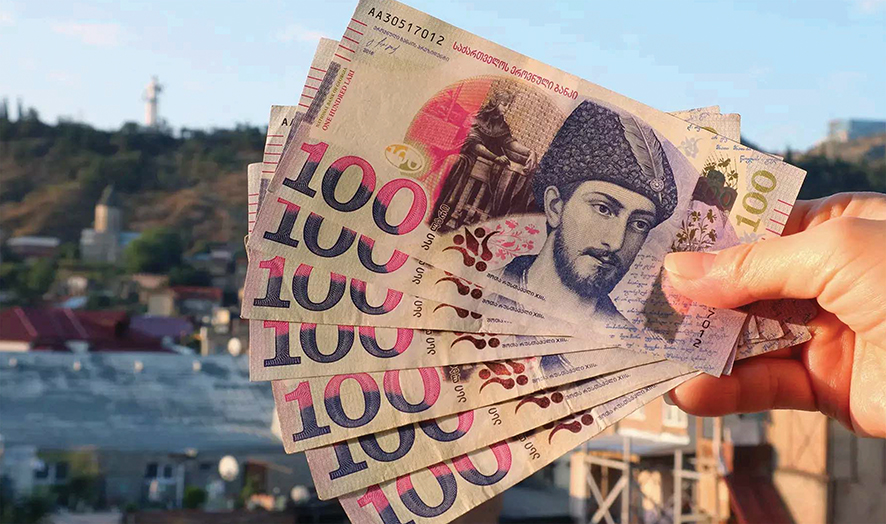Money tells stories. Not just of economic transactions but of cultural transformations, shifting identities, and geopolitical realignments. The latest data on remittances in Georgia is more than just a set of numbers—it is a mirror reflecting deeper societal trends. The radical drop in transfers from Russia (-62% in January 2025 compared to the previous year) is not merely an economic shift; it signifies the ebbing influence of Russian migration and a reconfiguration of financial flows in the region. But what does this mean for Georgia as a country that has long been shaped by remittances? And what does the rise of alternative financial channels, such as crypto transactions, reveal about the future of economic exchange?
From Lifeline to Liability: The Cultural History of Remittances
Remittances have always been more than money. They are a form of emotional connection, a survival strategy, and often a way to maintain cultural ties across borders. In Georgia, as in many post-Soviet states, remittances have historically played a crucial role in stabilizing households, funding education, and even shaping urban development. Since the 1990s, when the collapse of the Soviet Union led to waves of emigration, families have relied on money sent from relatives abroad, particularly from countries like Russia, Greece, and Italy.
Sociologist Peggy Levitt, in her concept of social remittances, argues that alongside money, migrants transfer ideas, practices, and values back to their home countries. This means that the current shift in remittance patterns is not just an economic event but a cultural one. The declining share of Russian money suggests a decreasing Russian influence in everyday Georgian life—at least financially. At the same time, increasing inflows from the US (+23%), Israel (+19%), and Germany (+18%) indicate a diversification of Georgia’s economic dependencies.

Why Is Russian Money Drying Up? A Migration Story in Reverse
The drastic fall in Russian remittances is largely tied to two interconnected factors: the gradual outflow of Russian migrants from Georgia and the rise of alternative financial mechanisms.
The arrival of Russian migrants in Georgia following the invasion of Ukraine in 2022 was one of the most significant demographic shifts in the country’s modern history. At its peak, the influx of high-income Russian professionals led to skyrocketing rents, business expansions, and a cultural clash in urban centers like Tbilisi and Batumi. Many of these migrants relied on traditional remittance channels to support their businesses, investments, or daily expenses. However, since late 2023, there has been a slow but steady reversal. Some Russian migrants are returning home, either due to personal reasons or changing conditions in Russia. Others are relocating again—to Serbia, Turkey, or Latin America—seeking more stable legal frameworks.
Another major shift is the increasing use of cryptocurrencies and peer-to-peer transactions among Russian expats. With sanctions restricting international financial flows, and traditional banking systems becoming riskier, digital currencies provide a way to bypass institutional controls. Many Russian expatriates in Georgia now move money via decentralized networks, reducing the need for formal remittance services.
The Kyrgyz Connection: A Surprising Winner in the New Financial Order
One of the most unexpected developments in Georgia’s remittance data is the 126% rise in transfers from Kyrgyzstan. Unlike traditional remittance-sending countries (such as Italy and Greece, where Georgian labor migrants work), this spike is directly linked to trade. The surge in car imports to Kyrgyzstan—driven by Georgia’s role as a transit hub for used cars from the EU—explains the jump. This highlights a broader trend: as labor migration remains a steady source of remittances, business transactions are becoming an increasingly important factor in Georgia’s financial landscape.
What Does This Mean for Georgia’s Economic Future?
The evolution of Georgia’s remittance flows raises important questions about the country’s economic future and cultural positioning. The growing share of remittances from the US, Germany, and Israel suggests that Georgia’s financial ties are shifting westward. While this does not mean an immediate decoupling from Russia, it reflects a gradual diversification of economic relationships.
With the decline of formal bank transfers and the rise of crypto transactions, Georgia may see a further blurring of economic boundaries. This shift could challenge regulatory authorities while also positioning Georgia as a fintech-friendly hub in the region.
The drop in Russian remittances is more than just an economic trend; it is a symbol of a larger transformation in Georgia’s cultural and financial ecosystem. While traditional migration-based transfers remain vital, the rise of alternative financial mechanisms, new trade routes, and shifting geopolitical alliances are reshaping the way money moves—and with it, the identities and relationships of those who send and receive it. Georgia, once heavily reliant on Russian money, is now navigating a more complex and diversified economic landscape, one that reflects its ongoing quest for independence, resilience, and a redefined place in the world.
By Ivan Nechaev














